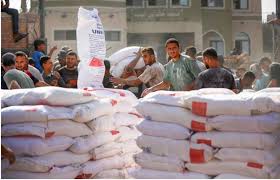
Introduction
The situation in Gaza remains a critical issue for international relations and humanitarian efforts in the Middle East. The ongoing conflict has not only affected the lives of millions but also has significant implications for global politics and peace initiatives. Understanding the historical context and current developments in Gaza is essential for anyone looking to grasp the complexities of the region.
Current Events
As of October 2023, Gaza is experiencing severe humanitarian challenges following the latest escalations in conflict that have erupted since early October. The Israeli military operations aimed at Hamas, which controls Gaza, have led to widespread destruction, resulting in thousands of civilian casualties and significant displacement of people. According to the United Nations, over 1.2 million residents of Gaza have been forced to flee their homes due to violence.
Reports indicate that essential resources such as water, electricity, and medical supplies are critically low. Hospitals are overwhelmed with casualties, and many medical facilities are struggling to operate due to constant bombardments and shortages of medical supplies. Humanitarian organizations, including the Red Cross and various UN agencies, have called for an immediate ceasefire to allow for urgent humanitarian support and aid to reach affected areas.
International Response
The international community has expressed deep concern over the escalation in violence. Calls for de-escalation and peace talks have come from various countries, with some urging both sides to return to negotiations aimed at a two-state solution. However, diplomatic efforts have faced significant challenges due to the entrenched positions of both Israel and Hamas.
Countries such as Canada, the United States, and several European nations have reiterated their support for Israel’s right to self-defense while emphasizing the need to protect civilian lives. Conversely, many nations and organizations highlight the humanitarian crisis in Gaza and urge for immediate interventions to mitigate the suffering.
Conclusion
The situation in Gaza is rapidly evolving, with significant global implications for stability in the Middle East. As humanitarian needs grow, the calls for a sustained peace process become ever more urgent. Without immediate action, the ongoing crisis could lead to a long-term humanitarian disaster, further entrenching cycles of conflict and suffering. It is crucial for readers to stay informed and to support humanitarian efforts aimed at alleviating the plight of those affected.






